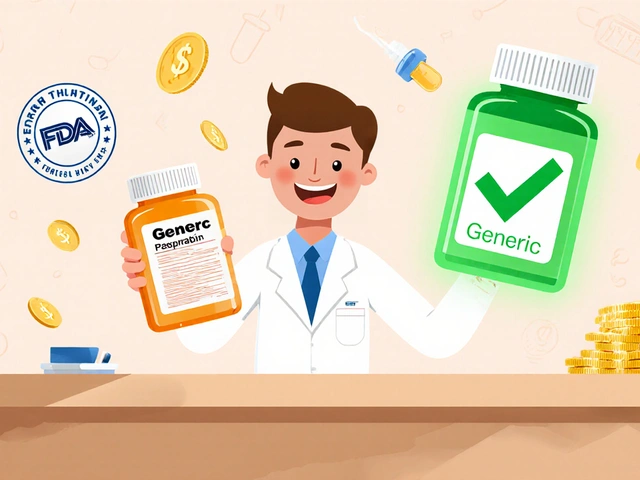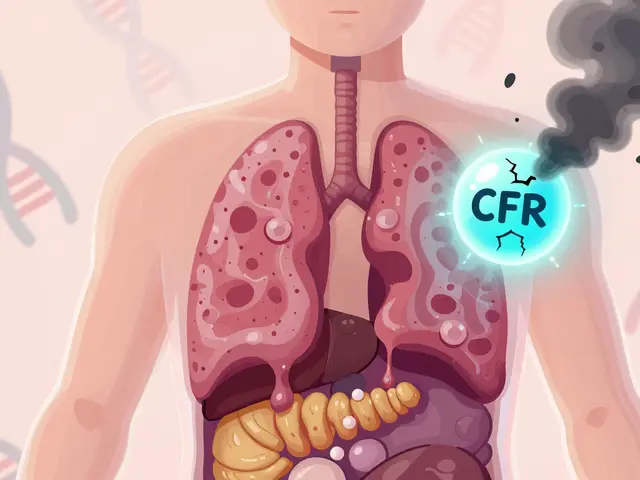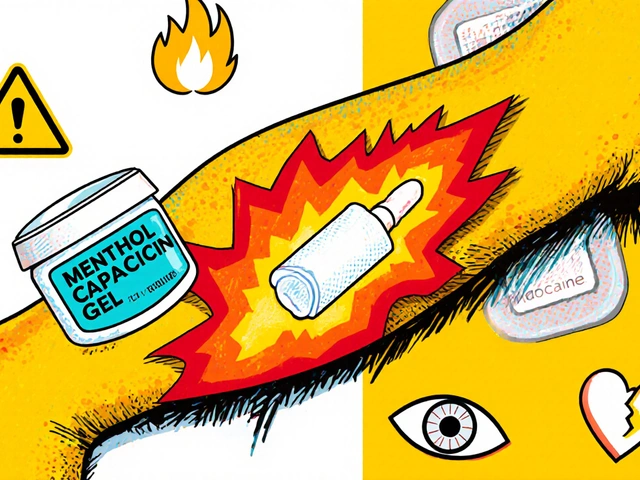Expectorant Basics: Clear Mucus and Breathe Easier
If you’ve ever felt a tight, sticky cough that just won’t quit, an expectorant might be the missing piece. These meds are designed to thin the mucus in your lungs so you can cough it out instead of holding it in. The result? Less irritation, easier breathing, and a faster recovery.
How Expectorants Work
Think of mucus as a thick sauce that sticks to the walls of your airways. Most expectorants contain ingredients like guaifenesin or bromhexine, which act like a “watered‑down” version of that sauce. They increase the water content of the mucus, making it runnier and easier for your cilia (the tiny hair‑like cleaners in your lungs) to move it toward the throat.
When the mucus becomes less sticky, your cough reflex does most of the work. You’ll notice a more productive cough that actually clears the chest instead of just irritating it. This is why doctors often recommend an expectorant before a cough suppressant – you want to clear the blockage first, then calm the cough if it’s still harsh.
Choosing the Right Expectorant
Not all expectorants are created equal. Over‑the‑counter (OTC) options like Mucinex contain guaifenesin, which is great for short‑term colds and mild bronchitis. If you have a chronic condition such as COPD, a doctor might prescribe a stronger formula with bromhexine or acetylcysteine to handle thicker mucus.
When picking an OTC product, check the dosage. Adult tablets usually contain 200‑400 mg of guaifenesin per dose, while children’s liquid versions are measured in milliliters. Follow the label and stay hydrated – drinking water helps the expectorant work faster.
Watch out for combos that mix an expectorant with a decongestant or antihistamine. Those can be handy if you have a runny nose and a cough, but they also add extra side effects like jitteriness or drowsiness. If you only need mucus relief, stick with a single‑ingredient expectorant.
People with asthma, high blood pressure, or diabetes should talk to a pharmacist or doctor before starting any new cough medicine. Some expectorants can interact with blood thinners or affect blood sugar levels.
Finally, lifestyle matters. Staying hydrated, using a humidifier, and practicing deep‑breathing exercises boost the effect of any expectorant. Think of the medication as a tool – you still need to give your body the right environment to clear out the mucus.
In short, expectorants help turn a sticky, unproductive cough into a useful one. By thinning mucus, they let your natural defenses do the heavy lifting. Choose the right product, stay hydrated, and check with a health professional if you have any underlying conditions. With the right approach, you’ll be breathing easier in no time.
Bromhexine: Uses, Benefits, Dosage, and Side Effects Explained
Discover what Bromhexine is, how it works for cough and mucus relief, dosage tips, side effects, and expert advice on using this popular expectorant safely.
View More




